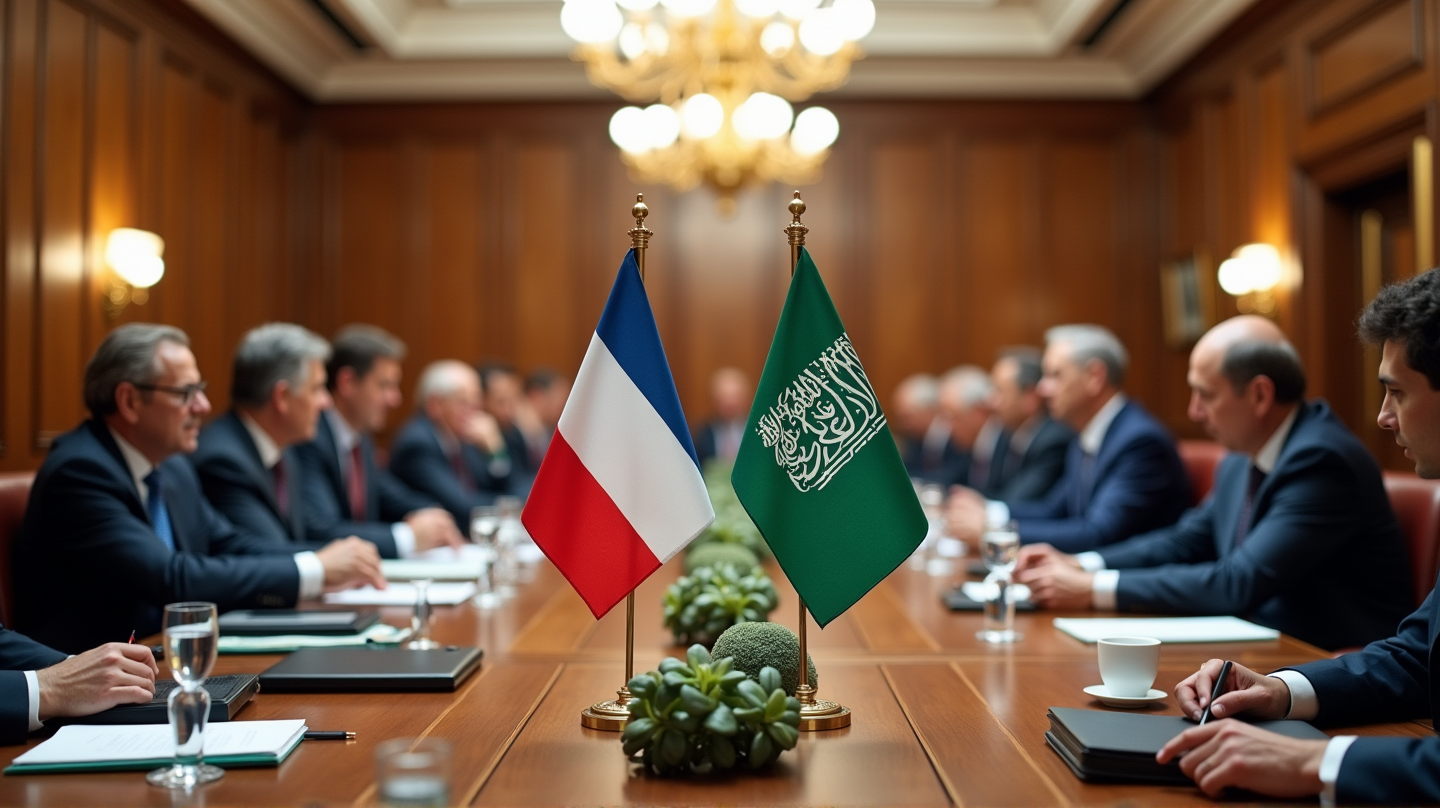France and Saudi Arabia Spark a Diplomatic Revolution with Palestine Recognition
France and Saudi Arabia lead a groundbreaking push for Palestinian state recognition, reshaping international diplomacy and global alliances.

In an unprecedented move, France has led a successful diplomatic campaign to recognize Palestine as a sovereign state, fundamentally shifting the balance in international diplomacy. France partnered with Saudi Arabia, bringing this issue to the forefront of the global stage, and drawing support from Western and Arab nations alike. This strategic alliance, crystallized at a high-level UN conference, has been instrumental in influencing a previously stagnant dialogue into new action.
Historical Foundations of a Diplomatic Partnership
France’s diplomatic relations with Saudi Arabia have been long-standing, going back to France’s early recognition of the territories and forming alliances for mutual benefits. This partnership grew over decades with significant milestones such as defense collaborations and the creation of the Saudi-French Strategic Partnership Council, laying a strong foundation for their joint diplomatic initiatives concerning Palestine.
France’s Bold Recognition of Palestine
In a historic announcement, President Emmanuel Macron declared France’s official recognition of the Palestinian state at the UN General Assembly. France became the first Western UN Security Council member to recognize Palestine, setting a new precedent and encouraging Western European nations to follow suit. Macron’s decision, though conditional on several Middle East peace milestones, marks a significant shift from France’s earlier cautious stance, positioning France as an influential mediator on the global stage.
The UN Conference: A Catalyst for Change
The UN conference co-hosted by France and Saudi Arabia was a pivotal moment, spurring new commitments to Palestinian recognition. The summit underscored regional integration, governance reforms, and security assurances tied to a two-state solution. This collaboration between two global powers illustrates a new narrative, redefining how global peace efforts can be actualized through international cooperation.
The New York Declaration: A Step Forward
At the conclusion of this diplomatic mission, the New York Declaration was adopted, offering a clear roadmap for establishing Palestinian statehood backed by a substantial international consensus. This effort, endorsed by the European Union and the Arab League, exemplifies a significant alignment of international policies pushing towards substantive progress on Palestinian sovereignty and Middle Eastern peace.
Global Reactions and the Ripple Effect
While the international community’s reaction is mixed, with notable opposition from Israel and the U.S., there is a growing coalition supporting Palestinian statehood. Public opinion, especially in countries like the United States, is shifting towards favoring a peaceful resolution and recognition of Palestine, which may eventually influence diplomatic stances.
A New Chapter in High-Stakes Diplomacy
France’s recognition of Palestine, in concert with Saudi collaboration, is more than just a diplomatic gesture; it represents a new chapter in international relations. This initiative changes the landscape of Middle Eastern diplomacy, demonstrating how strategic alliances can redefine long-standing conflicts and offer fresh opportunities for a more peaceful global order. According to TRENDS Research & Advisory, the international community continues to debate Palestinian statehood vigorously.
This move by France and Saudi Arabia could be transformative, as the partnership illustrates how cross-regional collaboration can overcome entrenched challenges and open pathways for peace in the Middle East.





